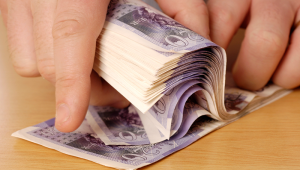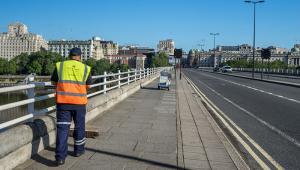The Office for National Statistics released its June inflation bulletin today, which showed a 0.3% fall inflation from the previous month. However, inflation still stands 0.6% above the Bank of England’s 2% target.
“Falling prices for motor fuels and certain recreational and cultural goods and services were the main contributors to the fall in the rate,” the ONS report stated.
“These downward contributions were partially offset by rising prices for furniture and furnishings.”
Inflation of 2.6% still outstrips wage growth in the UK meaning living standards are still being squeezed.
Commenting on the figures, TUC general secretary, Frances O’Grady said “Britain needs a pay rise across the public and private sectors.”
She said: “The government must stop this cost of living squeeze. Many working people are caught in a vice as rising prices crush their pay.
In recent weeks the government has faced pressure to review its policy of a 1% cap on public sector pay rises which critics say is causing a crisis of recruitment and retention of quality staff in the sector.
Stephen Clarke, policy analyst at the Resolution Foundation, said the small fall inflation was “good news” for struggling households but the poorest were still being hurt by slow wage growth.
He added: “Households experience very different inflation pressures and so far this year rising prices have borne down most heavily on the poorest.
“For many of these families this higher inflation means an even tighter pay squeeze and an even bigger fall in the value of benefit such as tax credits.”
Clarke urged the government to end its cash freeze on working age benefits to help poorer families hit by inflationary price rises.
This view was echoed by Ben Brettell, senior economist at Hargreaves Lansdown, who noted that, despite the inflation drop, “pay is still shrinking in real terms for now”.
Bretell added: “If inflation continues to moderate, this could bode well for economic growth – the UK economy is heavily reliant on the consumer, and economists had expected falling real incomes to eventually translate into lower retail sales.”
Shilen Shah, bond strategist at Investec Wealth & Investment, said: “The downward surprise in June’s inflation print removes some of the hawkish urgency within the Bank of England, with petrol prices and recreational items being the primary contributors.
“The inflationary impact of Sterling’s fall following the Brexit vote seems to have lessened following the recent one-year anniversary of the Brexit vote.”



















